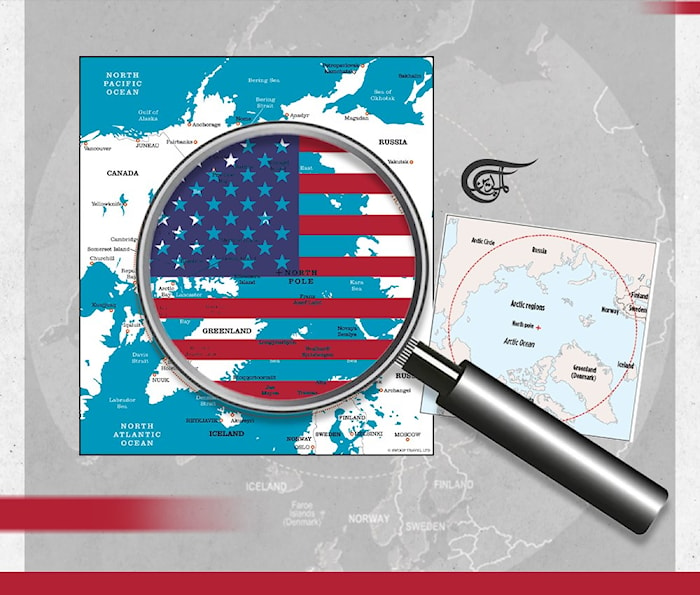The US Arctic strategy of 2022 is anchored in encirclement and provocations
The latest strategy is less about contributing constructively to the Arctic’s development and more in line with keeping America’s geopolitical objectives intact which is not a recipe for peace.
The entire concept of constructivism in international relations is based on states pursuing foreign policies anchored in shared ideas rather than material factors. A constructivist approach also involves upholding key principles of peaceful coexistence, respect for state sovereignty, and resolving all outstanding disputes through dialogue and reconciliation. The approach of the Biden administration has to been to follow through with his predecessor Donald Trump’s playbook of increased US isolationism, provocations, and brazen disregard for multilateralism. The latest strategies in the Arctic are no different.
The United States issued a ‘National Arctic Strategy’ of 2022, calling for greater American responsibility for the stewardship and protection of the region. The strategy calls out the greater global strategic competition as an existential challenge and seeks to rally American allies to partake in Washington’s latest attempt to pursue Cold War provocations. The truth is that the latest strategy is less about contributing constructively to the Arctic’s development and more in line with keeping America’s geopolitical objectives intact, which is not a recipe for peace.
To promote narrow, parochial interests over the greater good of the international community is flawed and is bound to antagonize American rivals and further widen trust deficits.
In the Arctic, the Biden administration has persisted with his anti-China doctrine, which seeks to encircle and instigate tensions in the South China Sea and beyond. The strategy mentions an American imperative to effectively compete and manage discord in the region, which takes a leaf from former US President Barack Obama’s strategy of 2013. Back then, Obama’s playbook mentioned that US security interests must be prioritized, while innovative arrangements and mobilizing native Alaskans, which is critical for the region’s sustainable development, were to be treated as additional considerations. Not much has changed in 2022, as the modified strategy only carries amendments such as improving the livelihoods of local residents, addressing the climate crisis on an urgent basis, and conserving the environment. These are annexes to Obama’s securitization policy, and by augmenting the China threat perception in 2022, the Biden administration is essentially retaining the offensive, aggressive, and militarized orientation of the Arctic strategy of 2013.
From a security perspective, this entails that the United States retains the right to enable vessels and aircraft to operate over Arctic airspace and waters while also conducting scientific observations for national defense and maintaining under the sea and air assets. Furthermore, the Biden administration is also seeking to enhance capabilities to boost deterrence against China despite no evidence of Beijing pursuing aggressive designs against American regional interests. Note that as part of President Xi Jinping’s Belt and Road Initiative, China is setting up research institutes and investing in mining and energy, cable laying, and promoting shipping lanes and resource development for the betterment of the Arctic. The fact that the positive economic development of the Arctic region in the Ukraine War and pandemic era is a secondary consideration in Biden’s strategy reveals how Washington D.C. is least interested in peaceful coexistence.
Examined closely, Biden’s strategy is to transfer its tactics of militarization in the South China Sea and the Middle East into the Arctic to ensure that hegemonic interests vis a vis China are kept intact. Unfairly, it singles out China’s presence as destabilizing and contributing to strategic competition despite the fact that such threat perceptions have little traction internationally. Furthermore, Alliance cooperation or camp politics is part of the 2022 strategy with the second of five principles stating that partners such as Canada, Finland, Norway, and Sweden will be reached out to play an active role in supporting American securitization efforts. This is controversial as it mirrors previous attempts by Washington to leverage platforms such as the Quad as a joint force to tackle China despite clear evidence of Beijing’s priorities in the region and beyond, centering on economic and sustainable development, such as establishing global transport corridors and developing logistics and port terminals. While the Arctic strategy calls for investments in climate monitoring and communications technologies, the ten-year plan also involves positioning the United States in a preemptive and dominant position. The document clearly mentions that ‘Russia’s war in Ukraine has raised geopolitical tensions in the Arctic as it has globally, which has created new risks of unintended conflict and hindering cooperation.’
Furthermore, pillar one of the strategy speaks about coordinating shared approaches to security such as intelligence gathering for geopolitical objectives. US security in the region also insists on expanding capabilities, such as improving domain awareness, installing more Coast Guard breakers, and investing in maritime transportation infrastructure, which is in stark contrast to the BRI. The 2022 strategy only mentions building institutional capacity to serve American parochial interests regardless of whether such pursuits constitute Cold War mentalities or not. Countries such as China have repeatedly called out such reckless adventurism as evidence of the US employing Cold war binaries, and this latest spree will only lend credence to that argument.
Hence, it is clear that the US National Arctic strategy of 2022 is yet another American attempt at pursuing reckless geopolitical competition. It serves no one’s interest that such competition is operationalized in an environment that is already deeply divided and fractured into multiple camps. There is a need for greater strategic wisdom to take hold and the absence thereof will only result in greater tensions. That is precisely what the world does not need.

 Hamzah Rifaat
Hamzah Rifaat
 5 Min Read
5 Min Read












